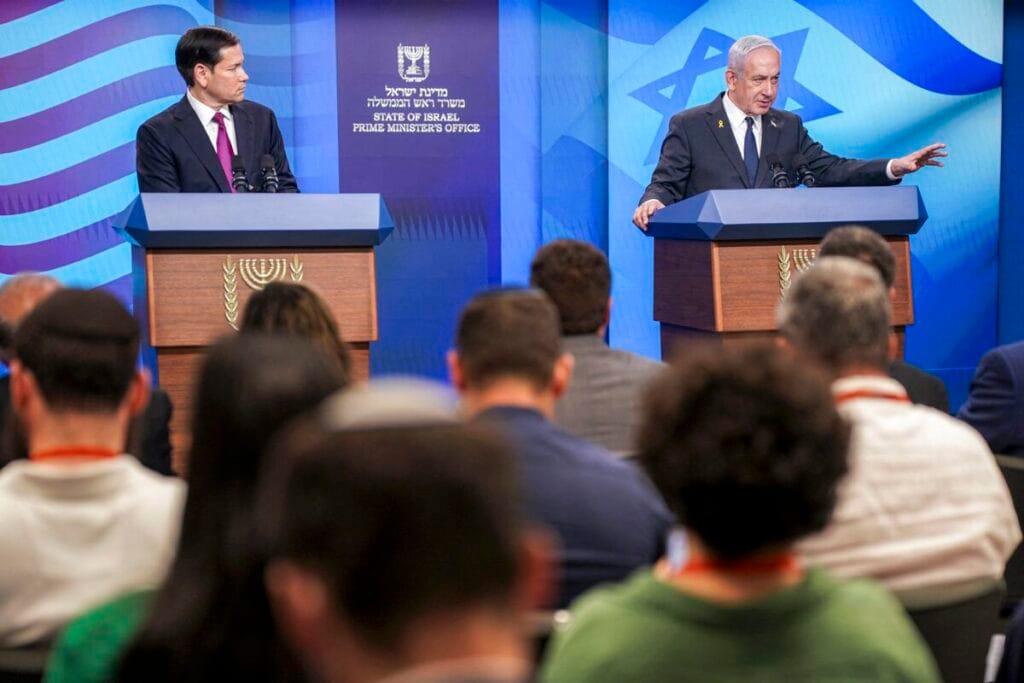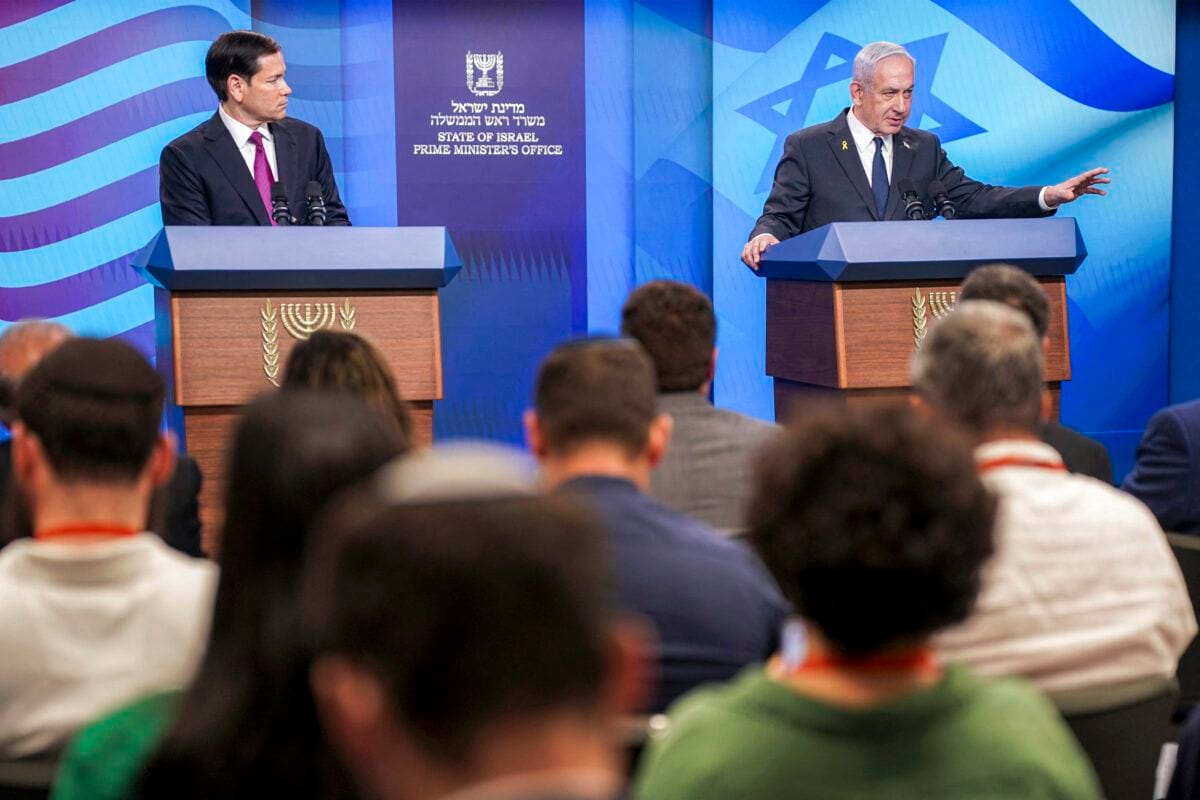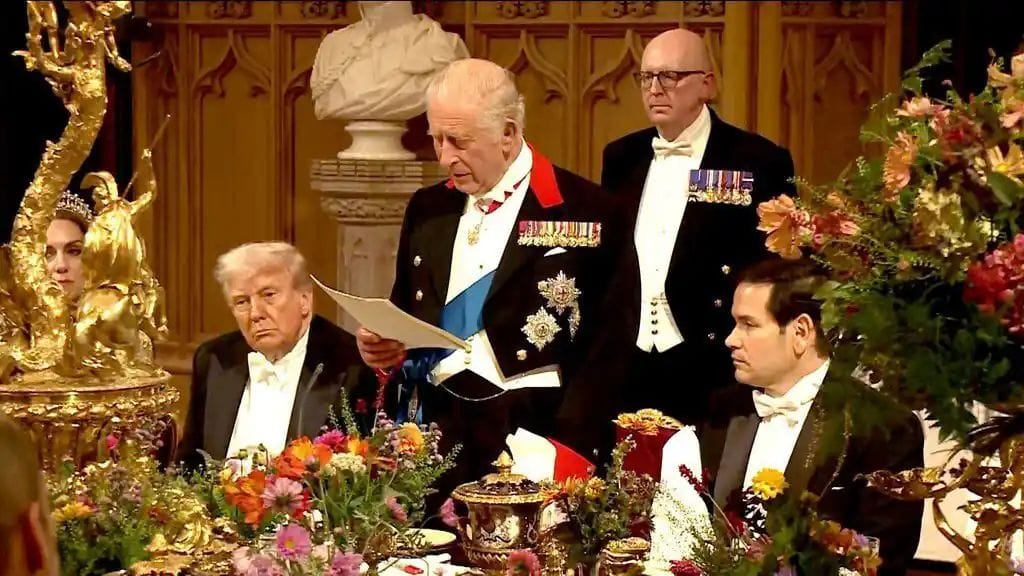Israel Gaza conflict escalates as U.S. and Israel stand firm despite outrage over Gaza airstrikes, Doha strike, and mounting civilian casualties.
The Israel Gaza conflict entered a new phase this week as Israeli Prime Minister Benjamin Netanyahu welcomed U.S. Secretary of State Marco Rubio to Jerusalem.
Their joint appearance projected solidarity at a time when international criticism is growing over Israeli military actions in Gaza City and an earlier strike in Qatar.
While Arab and Muslim leaders met in Doha to condemn Israel’s actions, Netanyahu and Rubio emphasized their common goal: defeating Hamas and securing the release of hostages.

Rubio stated, “As long as Hamas remains, there can be no peace,” casting the group as the main barrier to stability in the region.
Escalation of Gaza Airstrikes
As diplomacy played out in Jerusalem, Israeli forces intensified Gaza airstrikes, leveling high-rise buildings and killing at least 12 people, including children, according to doctors at Shifa Hospital. A separate strike destroyed a family tent, killing seven.
Israel’s military justified the destruction by claiming Hamas used residential towers for surveillance.
Thousands of residents were ordered to evacuate and head south toward Mawasi, an overcrowded tent camp designated as a humanitarian zone. Yet even Mawasi has been targeted in strikes against alleged militant positions.
Residents described the worsening situation with despair. “It was another night of terror. The tragedy is deepening daily,” said Mohammed Saber, a resident of Gaza City.
Doha Strike and Qatar Mediation
The Israeli airstrike in Doha, which killed five Hamas operatives and a Qatari guard, has complicated ceasefire talks and strained ties with Washington.
President Donald Trump expressed frustration that Israel launched the strike without consultation.
Rubio, however, avoided public criticism of Netanyahu, instead insisting that Qatar should continue to play a role in mediation. He stressed that U.S. policy is focused on “what happens next” rather than revisiting the Doha incident.
Diplomatic Showdown at the United Nations
Israel also faces pressure ahead of the United Nations General Assembly, where several European countries and Canada plan to recognize a Palestinian state.
Both the U.S. and Israel oppose such moves, arguing they undermine negotiations and embolden Hamas.
Rubio described unilateral recognition as harmful. “The only effect is to strengthen Hamas and weaken real diplomacy,” he said.
Netanyahu hinted that Israel could respond with its own unilateral actions, possibly annexing parts of the West Bank.
“If unilateral steps are taken against us, they invite unilateral steps on our part,” he warned.
Humanitarian Toll of the Israel Gaza Conflict
The Israel Gaza conflict traces back to October 7, 2023, when Hamas-led militants stormed southern Israel, killing 1,200 people—mostly civilians—and abducting 251.
Many hostages have since been released through Qatari-brokered deals, but dozens remain in captivity.
Israel’s military campaign has caused massive casualties. Gaza’s Health Ministry reports more than 64,000 deaths, with women and children comprising nearly half.
The ministry, run by Hamas but staffed with medical professionals, does not distinguish between fighters and civilians.
Across Gaza, families continue to flee through narrow corridors designated as “safe routes,” carrying their belongings and seeking shelter in overcrowded camps.
Aid groups warn that food, medicine, and clean water are running out, worsening the humanitarian disaster.
U.S.-Israel Alliance Tested but Intact
Despite Trump’s frustration over the Doha strike, Rubio’s visit reaffirmed the strength of the U.S.-Israel alliance. His presence in Jerusalem signaled that Washington remains committed to supporting Israel even amid rising global criticism.
Netanyahu welcomed the gesture, saying: “Your presence here is a clear message that America stands with Israel in the face of terror.”
The Israel Gaza conflict continues to unfold across three fronts: relentless military action, diplomatic battles at the United Nations, and a deepening humanitarian crisis.
For Israel and the United States, the strategy remains focused on weakening Hamas and ensuring the release of hostages, even as calls for an immediate ceasefire grow louder worldwide.
For civilians in Gaza, however, life has become a struggle for survival in the ruins of a war with no clear end in sight.



